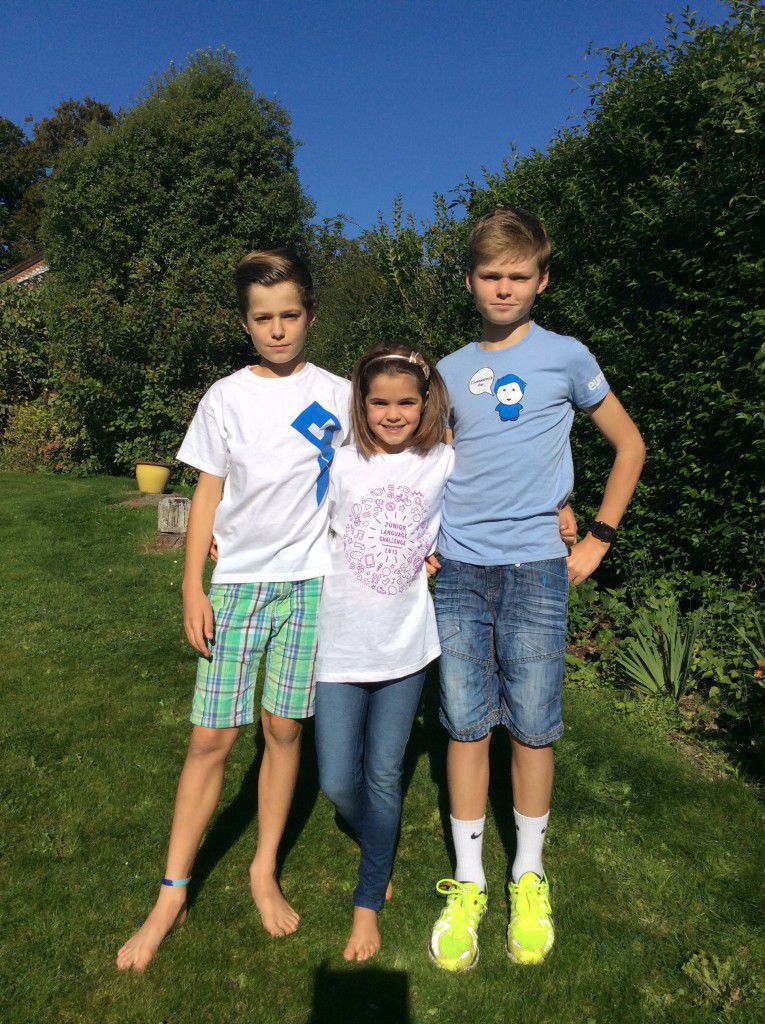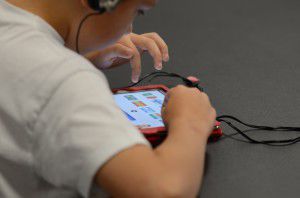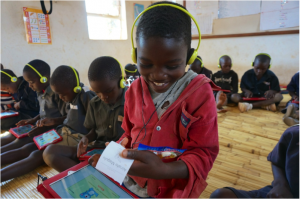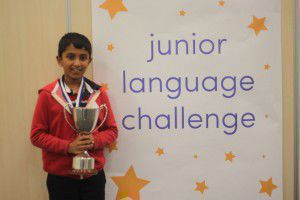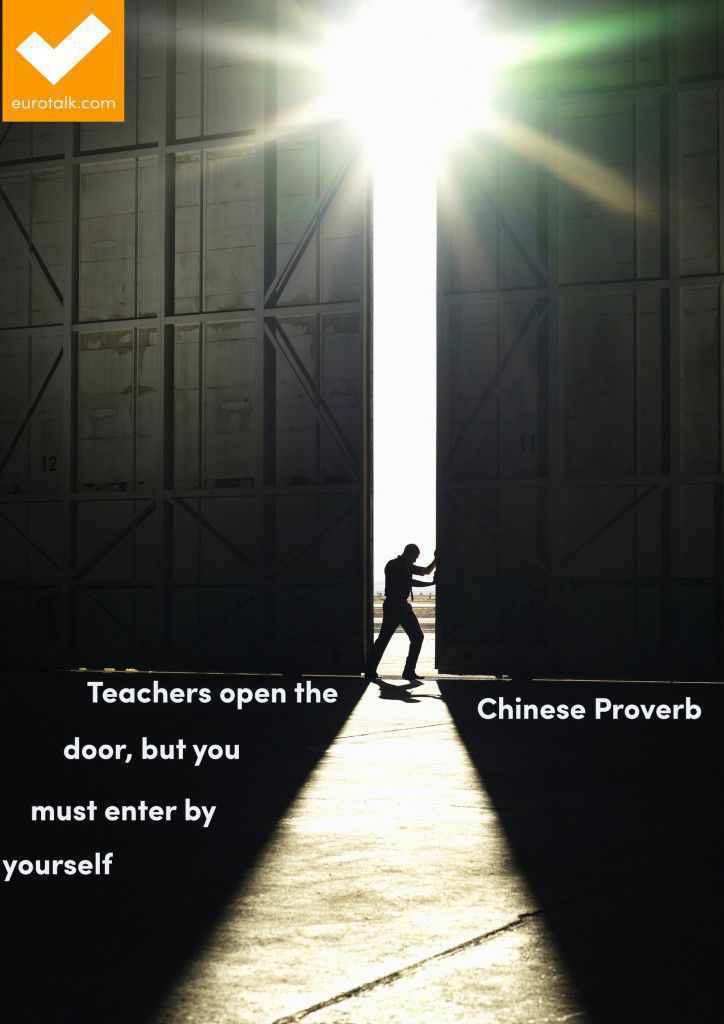Transforming education: why we’re proud to support onebillion
As you may know, EuroTalk is a proud supporter of onebillion, a non-profit organisation working to transform education for one billion children in developing countries. You may even have used their maths apps with your child (if you haven’t discovered them yet, they’re on the App Store). To find out more about onebillion’s fantastic work, and how far they’ve already come, read on…
Zahira is a six-year-old Malawian child. As a young girl in Malawi, she only has a 50% chance of finishing primary school, and a 50% chance of being married off before she’s 18. In this short TED talk by onebillion’s co-founder Jamie, he explains how our oneclass project is helping to change her future. onebillion’s educational apps are being used in schools all across Malawi, to provide accessible and effective maths and literacy learning to primary school children. This time a year ago, we had a oneclass centre in two schools in Lilongwe. Today, we have the funding to open almost a hundred new centres in schools all over the country, and bring transformational education to another 30,000 children over the coming three years. This talk was given by Jamie at TEDxYouth in Lilongwe last year: watch it to find out more about onebillion’s project and where we’re headed.
For more information, visit onebillion’s website.
There’s also still time to enter the Junior Language Challenge, our annual competition for primary school children in the UK, which has already raised over £5,000 for onebillion. We’d love to make it £6,000 (or more)!
Teenage Kicks: why language students aren’t listening
Today we welcome back language teacher Kelly, with some advice on engaging teenagers in language learning. Have you tried thinking outside the box with students? Tell us about it in the comments…
Another Brick In The Wall
Musicians have been flogging this particular dead horse for years: stop treating teenagers like an alien species that we have no relation to. Language teachers: take note.
Textbook learning: a one-trick pony
It doesn’t matter how much you enjoy language learning. Even the most enthusiastic learner will want to escape to a blanket fort at the prospect of studying purely from a textbook. And with good reason. Language textbooks, no matter the effort put into making them interesting, are one of the dullest resources to use when learning a language. And, incidentally, to teach one.
In my day…
Cast your mind back to your own time in school. Who doesn’t remember the tattered books on our desk with the rude scribblings in, the out of date ‘modern’ pictures and the stale, dated language that was being taught? There’s no easy way to jazz up your role play ordering of a baguette if you only know the standard fillings. Cheese? Ham? Tomato? Teacher: ever heard of Subway? We want to choose our own bread, avoid the olives, embrace the jalapeño and yes, of course we want it toasted.
If you can relate, pity the poor teenager in school as we speak.
Cue eye roll…
Being a teenager is an eventful enough time in your life; where’s the motivation to learn a language if all you get to talk about is school work and pets? Do you imagine that these are the only things teenagers discuss on Snapchat, Whatsapp or Kik? Have you never been on Tumblr?
Teenagers are just, as we are, feeling their way in the world. And what they are not feeling is the urge to learn languages when the methods of teaching are so out of touch. The issues that bother us are the same ones that bother them. So why not use that to a teaching advantage?
Attempting to change
A recent Guardian article looked at the ways in which an English exam board is planning on overhauling teaching languages using realia that teenagers can relate to and have a part of. Tattoos and tweets, authentic material foreign literature: things that are happening today.
For any ESL/EFL teacher out there, we hear you. We know. We have been saying this for years. If you use something relevant to the world around you to teach that your students can actively engage in, you’re going to get effective results. If you’ve ever taught at a language school with zero resources and had to make lessons out of nothing but your imagination, you’re probably looking down on the efforts being made to make language interesting in schools with well-founded ‘told-you-so’ disdain.
Teaching what matters
Teenagers – all students – want to learn about real, useable language, not tired, formal words and phrases that are technically correct but make you stand out like you’ve gone to a Slipknot gig in your preppy finest. There is nothing controversial about teaching people how people really speak; even within your own language you can learn something new every day. From colloquialisms to slang, language is a constantly evolving beast and we speakers are merely along for the ride. Digging our heels in and clinging on to the old ways is only going to result in hair (fur) pulling.
True learning comes from learning the basics and putting them into practice. Imagine learning the theory behind driving but never sitting behind the wheel of a car. Pointless and uninteresting. And while the theory is important – in the case of language, grammar and vocabulary – what is more important is putting it into practice. Role play how to find the post office all you want; what use is it if you’re needing directions to Primark on Oxford Street and you’re trying to navigate the Underground?
Kelly
5 reasons to join the Junior Language Challenge
If you’re a regular follower, you’ll have heard us talk in past years about the Junior Language Challenge, our annual competition for primary school children across the UK. This year’s challenge is now underway, and here’s why we want every child who’ll be aged 10 and under on 1st September 2015 to join in:
1. It makes languages fun
All parents and teachers know that children learn best when they’re enjoying themselves (as we all do – not just children!). So the JLC uses games and the competition element to make languages fun. We want every child who takes part in the JLC to come away from it with a new love of languages, and eager to continue with them as they move on to secondary school.
2. It introduces children to languages they’ve never heard of
Last year, children taking part in the competition learnt Italian, Japanese and Somali. This year, they’ll be starting with Portuguese. We like to offer exciting, different languages – because once a child knows they can learn Chichewa, suddenly French and Spanish won’t seem so daunting. And it encourages them to learn about other cultures and countries, some of which they may never have heard of before.
3. It doesn’t take up loads of teacher or parent time
We know teachers and parents are busy people. That’s why the JLC is designed to be as easy as possible to set up. We’ve even created this letter to parents, which explains what it’s all about. Everything’s done online, so once you’ve got them registered, children can login on any computer and keep learning. Our system records all the scores, so the only thing we need from the grown-ups once they’re up and running is encouragement!
4. It’s for charity
The JLC doesn’t just benefit the children who take part; it also raises money for our charity, onebillion. They’re doing fantastic work creating apps to transform the education of one billion children in developing countries, and we’re proud to support them. Each child who enters the competition pays a £5 entry fee, all of which is donated to the organisation.
5. There are some great prizes on offer
The JLC champion wins a once-in-a-lifetime family holiday to Africa (our 2013 winner, Ella, wrote us this fantastic report about her trip to Malawi). There are also prizes for the runners-up – in previous years these have included iPods and cameras – and goodie bags for everyone who makes it through to round 2 and beyond, including t-shirts, pens, and other treats, as well as discounts on EuroTalk software for the children and their schools.
Registration is open now for school groups and individuals. Teachers can register their school for free, to take a look and try out the games before deciding whether to sign up any pupils.
If you’d like more details about the Junior Language Challenge, or to join in, visit the website or email us.
And if you know anyone else who might be interested, please spread the word!
Good luck to everyone taking part this year. Or should we say Boa sorte 🙂
Quote of the week: 31 Jan 2015
“Teachers open the door, but you must enter by yourself.” Chinese proverb
For more like this, find us on Pinterest and We Heart It.
Embed This Image On Your Site (copy code below):

